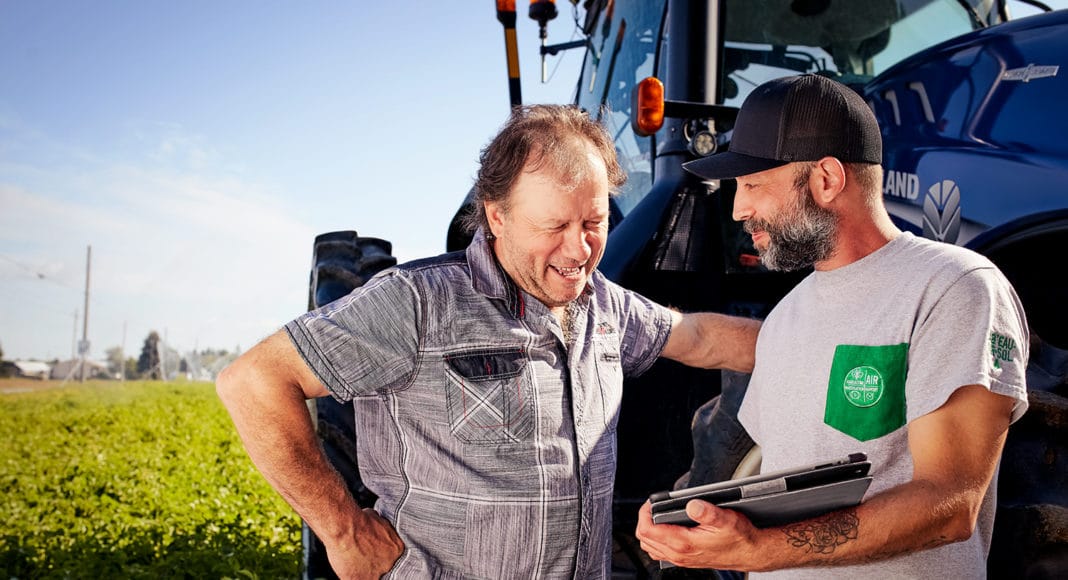AIR Program uses a proprietary system combining spore trapping and weather monitoring to protect potato crops.
Spud Smart (SS): What is AIR Program? And why should potato growers be interested in it?
Daniel Mondor (DM): AIR Program is a fungus diseases detection program — we like to call it preventive. Because as we know, for a spore to develop as a disease, it takes between four to seven days for the potato pathogens. And then it takes another five to seven days to see foliar traces in the field. So based on that, we usually provide a two-week window to be able to act accordingly…We provide a real time spore trapping data in the field. And we also have a weather risk indicator…This way, it’s a complete tool that you can use in order to know the real portrayal of the situation in the field.
SS: How do your spore traps and weather monitoring systems work?
DM: We use active mobile pumps, and we have a sampler going in the field three days a week, in order to get a report delivered in between 24 to 48 hours, but in most cases we can deliver the report the same day…The pump we use is brought by the sampler in the field. The reason we have decided to go with that kind of equipment is because it’s allowed us to position the sampling pump as per the direction of the wind. This way, the sample is more accurate. And we process the sampling in the sporulation period of the plant pathogen of interest, which is between the dew until around noon.
SS: If I was a potato grower and I was to work with you, what would I have to do?
DM: It’s a turnkey program. You get registered and then we take care of everything. Based on that we schedule the number of days we need for trapping, because it depends on the type of variety and a couple of other aspects. We also install a weather station on the side in order to provide the weather risk indicator…We have a platform where you can have access of all of your data through your phone or your computer…It’s a report, it’s super visual, you can see the reds, the green, the yellow for the weather risk indicator, as well as the number of spores that we have collected earlier in the day or the prior day.
SS: What potato diseases are you able to detect?
DM: We do late blight as well. And something that makes us unique and original is the fact that we can cover, for potatoes for example we cover five pathogens and déclinaisons, which are Phytophthora infestans, the two types of alternaria, which is early blight and brown spot, so alternaria solani, and alternaria alternata. We also do Fusarium and Botrytis, and we also monitor the Oomycetes, which are a category, it’s not the same kind of pathogen, but it definitely has an impact on the development of late blight.
SS: What area does AIR Program cover?
DM: We cover all of Eastern Canada, but we also we are in the States, in Maine, Colorado and Florida — we offer the only probably patented spore testing in North America. And we are developing more and more territory. The next step for Canada will be Alberta and Manitoba. We are super excited, because everywhere we go, we have to adapt because there’s different weather patterns and some other parameters, which is really exciting for scientists like us. We are super enthusiastic to come and start to operate in Western Canada. We will also be present in North Dakota, Wisconsin, and Michigan, as well as in California.
Make sure to enter to win one of two AIR Program tryout sessions for 2022 growing season.
Podcast: Play in new window | Download






